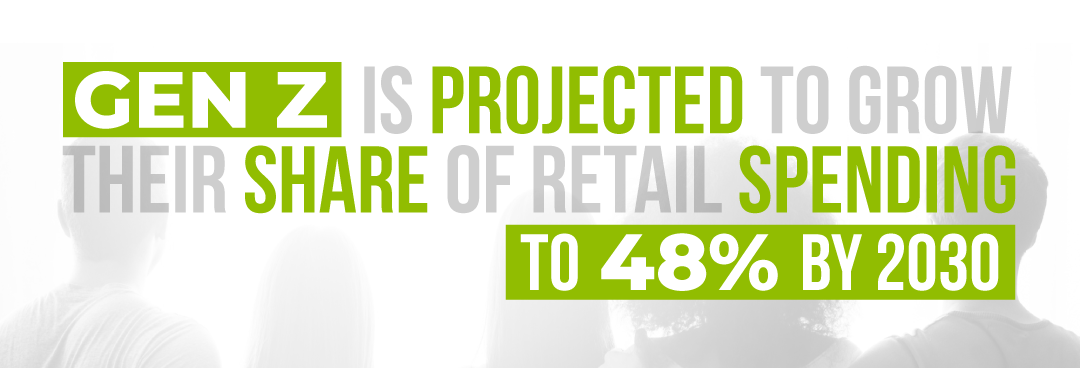In the past three years, many young Australians have graduated from school and entered the workforce, making their own money. However, especially after covid-19, every industry has drastically changed and is now different from anything experienced by previous generations. For everyone, how we interact within the market and how we make and spend money will never return to how it worked before the pandemic. However, for most Gen Zs, the new normal is just normal.
Gen Z comprises around 20% of Australia’s population and is increasingly becoming a powerful force in the economy. According to a study by Afterpay, both Gen Z and Millennials account for 36% of the total retail spend in Australia and, as more of Gen Z enter the workforce, their share of retail spending will grow to 48% by 2030.
That said, Gen Z is overwhelmingly changing the face of Retail Sales. So understanding their trends, thinking, and shopping behaviour is key for companies looking to cash in on Gen Z’s spending power.
What does this generation look for in a retail experience? What does that mean for commerce this New Year? What trends related to Gen Z consumers will change retail forever?

Here are some shopping trends and characteristics of Gen Z that pose important challenges for retail in 2023:
Digitally native shoppers
Gen Z Is the first generation to be digital natives, as they are the first to grow up with internet connectivity. They spend more time on social media than any other generation and are incredibly diverse and tech-savvy. When shopping, they are a truly omnichannel generation, engaging both online and off. However, they are more involved with brands via social media.
Not only that, but for Gen Zers, the digital world is a means to build connections and community. In fact, by using social media, most of them are part of micro-online communities that provide a sense of belonging.
Online communities can translate to purchases. For example, leading brands are driving sales with TikTok content in terms of bricks-and-mortar. Gen Zers’ growing influence is further fueling the shift towards online shopping, which was accelerated due to the covid-19 pandemic. In fact, according to Branding in Asia, Today, two in three Australian consumers in the Gen Z bracket find online shopping more enjoyable than in-person shopping (67% compared to 49% among older generations).
Nevertheless, digital is more than just a sales channel. It is a way to build connections and community. Thus, brands understand the increasing need to adapt to an ever-changing relationship with consumers. Building online brand communities is key for any company looking to engage with Gen Zers.
However, don’t write off physical retail.
Gen Z may be more comfortable online, and even though online shopping has greatly increased over the past few years, in-store shopping is still trendy among them. In fact, according to Forbes, most Gen Zers still like shopping in stores. And what they particularly look for when doing so are special promotions, free samples, and giveaways. Another important factor in their purchasing decisions is giveaways.
Furthermore, those who are more inclined to shop at physical stores, value technology-enhanced shopping experiences; rather than having to search for specific products, they prefer tech that can simplify the process.

Core Beliefs Drive Shopping Behaviour
Gen Zers are particularly passionate about sustainable practices. According to FirstInsight, the majority of Generation Z shoppers find sustainability to be more important than brand name when making purchase decisions.
Thus, Gen Zers are influencing the older generations, so they place more importance on sustainability in their purchasing decisions. That said, it is becoming increasingly important for retailers and brands to remain committed to sustainability practices to grow and stay relevant in the market.
Check out our blog entry on maximising sustainability efforts.
Focus on authenticity
Gen Z value both social responsibility and the authenticity of brands. This means that brands must be careful about their image, both on and off-line, as even the major brands have experienced backlash over controversial decisions. However, digital marketing can and must be used strategically by companies so they can increase brand awareness and improve their image. Social media such as Tik Tok or Instagram are great platforms for brands, so they can get to know better their target audience and curate their pages to be more authentic.
We understand that the need for brands to evolve to meet the expectations of the digitally savvy Gen Z consumer is very complex. However, mobile workforce management solutions can help you understand the new generation of consumers, generate an authentic brand and increase sales.
Contact us to know more information!













